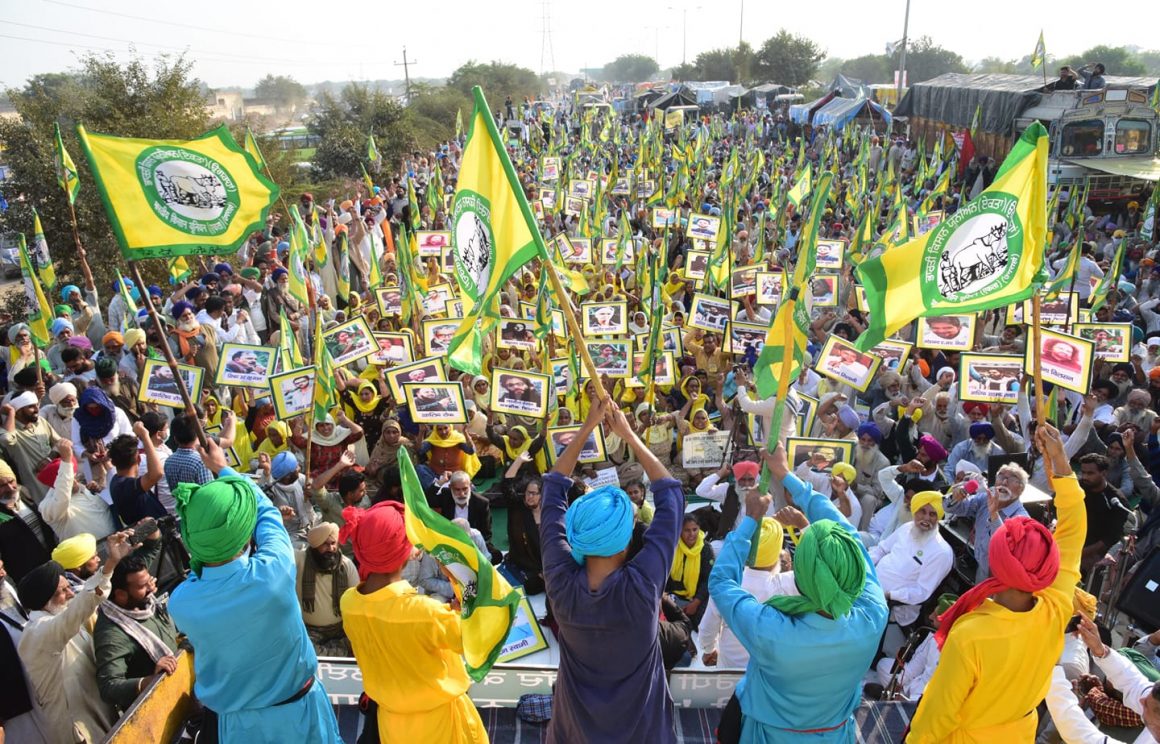
The Contemporary Dilemma: India’s agricultural protests
By Manahil Hassan, May 20 2021—
India thrives off the work of its farmers, who many consider to be the backbone of this nation. While farmers contribute to 17-18 per cent of the nation’s GDP, one would think that more appreciation would be expressed towards such a hardworking majority. However, recent laws passed by Indian Prime Minister Narinder Modi’s government tell us otherwise.
Previously, farmers worked with the government through a system called Minimum Support Pricing (MSP). This is a system that ensures farmers of 23 varying crops, mainly wheat and rice, are ensured guaranteed prices for their products and reduce price fluctuation int he market. In September 2020, three agricultural laws were passed by the Indian government with hopes to modernize and “benefit” the thousands of farmers who work gruelling hours to put food on the table.
The first law allows farmers to deal with private buyers directly rather than doing their business with the Indian government through the MSP. Farmers fear that due to this implementation, the Indian government will cease using the MSP, which provides for many men, women and children living on the poverty line. The second law pushes private buyers, corporations and farmers to negotiate their own contracts to ween off a regulated price system set by the Indian government. The third law modernizes the supply food chain of India by removing certain commodities like oilseeds.
Despite this, farmers have fought to combat these laws by protesting and camping on the outskirts of Delhi, fighting to have these laws repealed. Despite the deaths of 140 men and women caused by the harsh winter conditions, hundreds of protestors gathered in solidarity to peacefully protest these suppressive laws.
After months of talks between Modi’s administration and protest leaders, it seems that nothing has changed. Instead, Modi warranted the arrest of individuals exercising their right to protest and dissent the government.
This hypocritical and selfish behaviour is not even half of the story. After the tractor protests in Red Fort, internet access, water supply and electricity were cut by the government in retaliation. Instead of spending time listening to the concerns of the farmers, Modi thought it was wise to allow for smear campaigns and propaganda machines to label the protestors as secessionists and terrorists.
Modi has been keen to label India as a democratic nation, yet his history of imprisoning and hurting any groups that oppose his laws juxtaposes the image he tries so hard to present to the world. We need to listen to the farmers, and we need to help them in spreading their voice.
Half of India’s workforce is employed by the agricultural sector and many families find themselves shackled and trapped in a never-ending cycle of debt. These laws leave farmers vulnerable to exploitation and will drive down the prices of their products. Corporate takeovers will become the new norm.
This leader’s attempts to violate the rights of the Muslims, Dalits and now the Punjabi farmers has become crystal clear. Since he took office in 2014, Modi has gotten away with gross abuses of his authority and has succeeded in suppressing the wishes of many minority groups all over India. What is more embarrassing is that Bollywood actors and actresses waited for public figures like Rihanna and Greta Thunberg to make their own statements on social media and use their privilege to help one of their own.
It does not matter that India is thousands of miles away from Canada. We all know people who are affected either directly or indirectly by this contemporary dilemma. Many of us may never experience the adversities Indian farmers live through, but we can stand behind them in solidarity. If they can sleep in makeshift tents to bravely fight for their rights amidst a pandemic, then surely, we can sit in the comfort of our own homes and learn more about their plight.
Use your privilege to incite change in any way you can. Be the voice for the voiceless.
There are thousands of strong and fearless men, women and children all over the world. These are the people that wake up, despite the atrocities they are facing, and push forward without looking back. These are the people that sacrifice everything so their families will have a better future. This is what The Contemporary Dilemma highlights. This column is part of our Voices section and does not necessarily reflect the views of the Gauntlet’s editorial board
